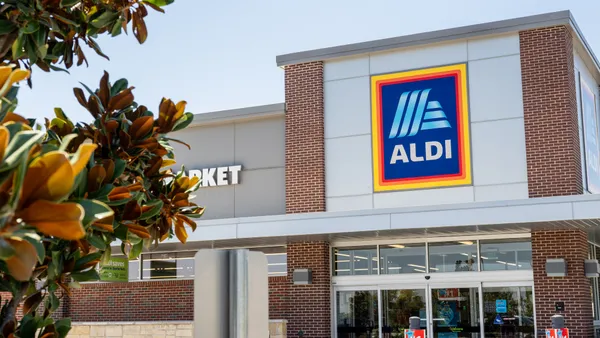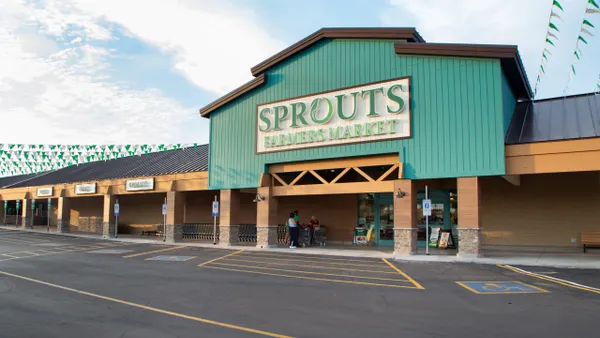Dive Brief:
-
North American retailers are making progress when it comes to removing toxic chemicals from their products, according to a new report from Safer Chemicals. Between 2016 and 2019, the average grade for 11 retailers evaluated each year went up from a D-plus to a B-minus.
-
For the second year in a row, mass retailers Target and Walmart led the group with A grades. Ahold Delhaize was one of the most improved companies this year, moving from an F grade in 2018 to a C-minus this year.
-
The report evaluated 10 grocers, with top performers including Whole Foods, which received a B-plus, and Aldi with a B-minus. Publix and Canadian grocer Metro were among the lowest scored with F grades. The average grade for grocers was a D-plus.
Dive Insight:
Across all companies, the report found that 63% of those evaluated have improved over the past year. Safer Chemicals’ report highlights a common effort among the most successful scores: announcing a comprehensive initiative with actionable steps.
Ahold Delhaize pledged earlier this year to clean up its store brands and eliminate "chemicals of concern," which appears to be paying off based on the report. The company has also agreed to participate in the Chemical Footprint Project beginning next year to track its progress, and plans to remove artificial colors, preservatives and sweeteners, MSG and high-fructose corn syrup from private label products by 2025.
As consumers learn more about unregulated chemicals in food and packaging materials, Walmart has stepped up to change its sourcing practices. The retailer, which received high marks in the Safer Chemicals report, has taken proactive steps to provide consumers with more transparency regarding their chemical policies, like announcing a Sustainable Chemistry Commitment in 2017.
Highly-graded Whole Foods has initiated efforts such as dropping takeout containers that contain toxic chemicals, while Aldi signed on to Greenpeace’s Detox campaign in 2015, which requires it to phase out toxic chemicals from its supply chain by 2020. Target announced a new chemical strategy in 2017 to provide greater transparency in its manufacturing and supply chain practices.
Publix received a failing grade in the report, primarily for its lack of a public-facing commitment to address chemicals. The report suggested that the retailer could improve if it adds a written safer chemicals policies to address key issues, and also noted Publix could get credit for its GreenWise line, which eliminates some chemicals, if the grocer could demonstrate the chemicals are banned in food processing.








